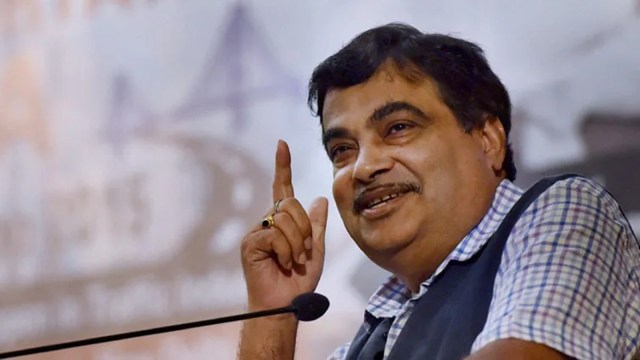Nitin Gadkari to give away Ramnath Goenka awards for journalism today
Union Minister for Road Transport and Highways Nitin Gadkari will give away the awards for stories done in 2021 and 2022 — when the country stepped out of the shadow of a pandemic — at a ceremony in New Delhi on Tuesday.
 Nitin Gadkari
Nitin GadkariFrom a story on how unplanned development can potentially lead to ecological damage in the higher reaches of the Himalayas to the relationship that Bastar tribals have with the State, from exposing a recruitment scam to highlighting the hardships faced by healthcare workers during the Covid pandemic — each of the winners of the Ramnath Goenka Awards for Excellence in Journalism Awards exemplify a basic tenet of journalism: the need to tell a story that touches lives.
Union Minister for Road Transport and Highways Nitin Gadkari will give away the awards for stories done in 2021 and 2022 — when the country stepped out of the shadow of a pandemic — at a ceremony in New Delhi on Tuesday.
Instituted by the Ramnath Goenka Foundation, the awards acknowledge and honour the best of journalism while showcasing 37 outstanding contributions from both print, digital and broadcast journalists across 13 categories, including investigative journalism, sports, politics & government, books, feature writing and regional language.
The jury for the 17th edition of the excellence awards included Justice B N Srikrishna, jurist and former judge, Supreme Court of India; Prof. (Dr) C Raj Kumar, Founding Dean, Jindal Global Law School (JGLS) and Director, International Institute for Higher Education Research and Capacity Building (IIHEd); Dr SY Quraishi, former Chief Election Commissioner of India; and K G Suresh, Vice Chancellor of Makhanlal Chaturvedi National University of Journalism and Communication, Bhopal.
“Some of the stories we received were exceptionally good. They were interesting and topical. We also got stories that intended to raise the awareness of citizens’ rights. In this day and age, when the print medium is dying and people are scared, it was heartening to see these brave souls coming up and speaking truth to power. When it came to judging which stories were good, it was a close margin,” said Justice Srikrishna.
The jury had to choose from a wide range of stories. “This year, we received different kinds of stories dealing with various issues. People sent their best stories and as always, there was a lot of competition. It was difficult to choose the best stories among the entries we received. Though we tried to be as objective as possible, subjectivity crept in, nonetheless. But we judged the stories on three major criteria — the story’s novelty, challenges faced while reporting and the impact it had,” Quraishi said.
The award-winning journalists pursued their stories in the face of tremendous pressure.
“There’s a perception that journalism is dead. But that’s not the case. Perhaps we are not reading the right kind of stories… Alternative media and regional news outlets are doing some of the finest stories. To sustain good journalism, we need to recognise good stories. Some of the journalists who sent in their entries worked in the face of pressure to pursue their stories. We received a good crop of stories. By recognising them through this platform (RNG Awards), we can encourage future journalists to reinstate their faith in the profession. I would encourage more journalists, especially from rural areas and regional news outlets, to apply for the awards,” said Suresh.
Past chief guests at the Ramnath Goenka Excellence in Journalism Awards have included Prime Minister Narendra Modi, Chief Justice of India D Y Chandrachud, former Presidents Pratibha Patil, A P J Abdul Kalam and Ramnath Kovind and former Vice President Venkaiah Naidu, among others.







